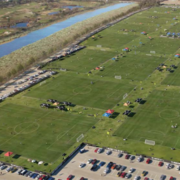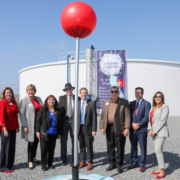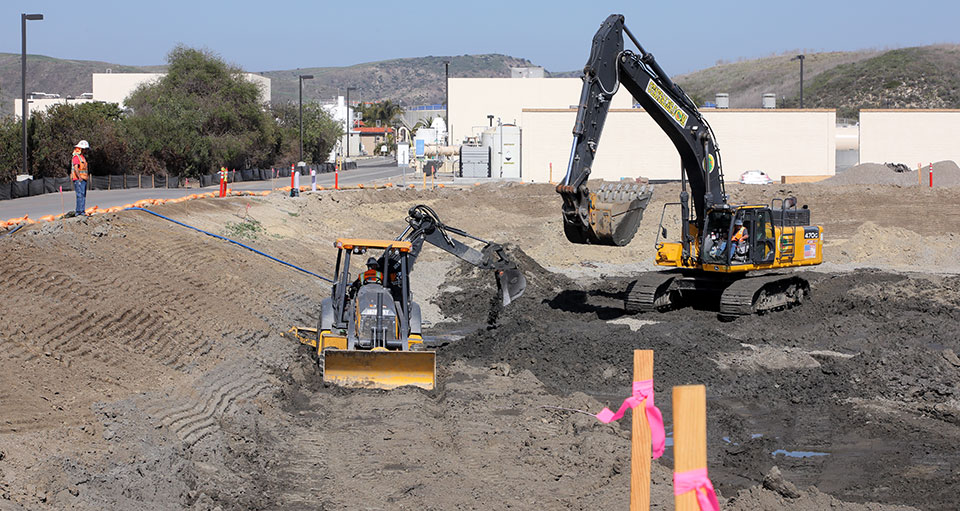Olivenhain Municipal Water District’s Recycled Water Pipeline Extension 153A was recognized September 10 as a 2020 Project of the Year by the San Diego and Imperial County Chapter of the American Public Works Association at its virtual awards event.
The pipeline extension connected the Surf Cup Sports youth soccer fields in San Diego to OMWD’s recycled water distribution system. By allowing Surf Cup to convert the irrigation of 55 acres of grass fields to recycled water, OMWD has reduced potable water demands for irrigation by up to 100 million gallons per year.
“OMWD’s board is honored to receive this award for a collaborative project, which expanded the use of recycled water while protecting the environment,” said OMWD Board Treasurer Larry Watt. “Additionally, state grant funding helped pay for the project, reducing costs for our ratepayers.”
Project of the Year will save up to 100 million gallons of potable water annually
The project involved the installation of 1,600 feet of 8-inch PVC pipeline that required specialized drilling and interagency cooperation to be completed. The pipeline needed to cross the San Dieguito River, causing design, permitting, and construction obstacles. OMWD’s design team used horizontal directional drilling to install the pipeline more than sixty feet below the river bottom.
Horizontal directional drilling reduces not only surface area damage, but also environmental impacts from construction site dust, making it less impactful to nearby habitat and communities than traditional excavation work.
Interagency cooperation benefits wildlife
OMWD worked with the California Department of Fish and Wildlife on a streambed alteration agreement to ensure the protection of fish and wildlife habitat. OMWD also worked with the U.S. Fish and Wildlife Service to protect nesting birds such as the federally listed clapper rail and barn owl.
By OMWD taking proactive steps, such as daily biological sweeps of the project and inspections of the trenchless process, there was no adverse impact to habitat or species in the project area.
City of San Diego, Santa Fe Irrigation District collaboration with OMWD
Interagency cooperation was also required for the project. The property is served water by Santa Fe Irrigation District and owned by the City of San Diego. While SFID did not have nearby recycled water infrastructure, it wanted to provide Surf Cup fields with a drought-resilient water supply. The OMWD pipeline project meets that need. The San Diego City Council approved a permanent utility easement allowing crews to access the property.
Grant funds support regional water management efforts
California’s Department of Water Resources awarded $202,300 for the project in Proposition 84 funding, which is administered by water wholesaler San Diego County Water Authority through the Integrated Regional Water Management program. The San Diego IRWM Program supports collaborative water management to increase regional self-reliance throughout California.
APWA is a professional association of public works agencies, private companies, and individuals dedicated to promoting public awareness through education, advocacy, and the exchange of knowledge. The APWA San Diego and Imperial County chapter annually recognizes the best public works projects and professionals in San Diego and Imperial Counties. The Project of the Year award is also intended to highlight the collaboration and cooperation between public and private agencies, contractors, and consultants, to complete public works projects.






